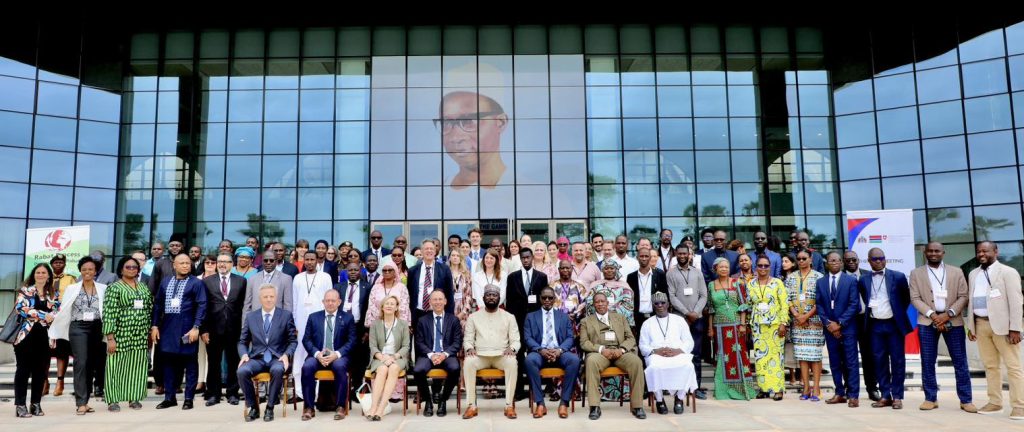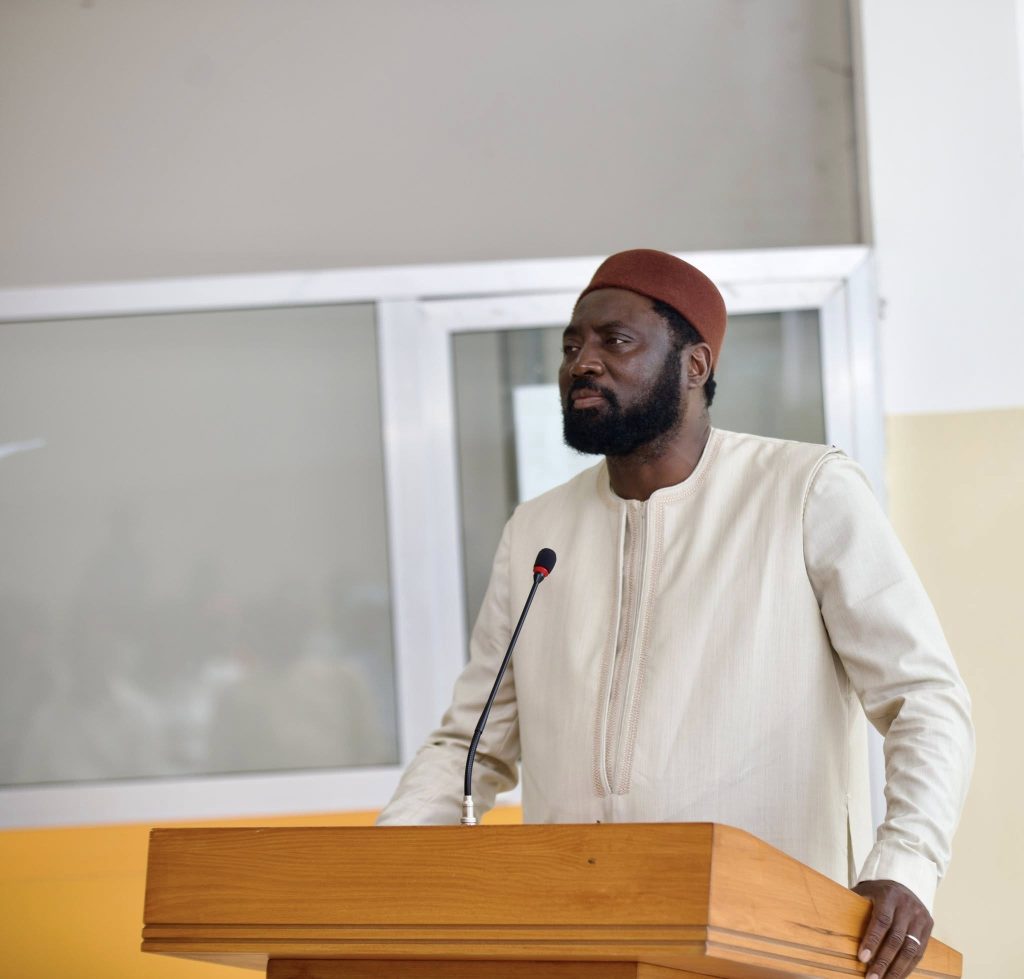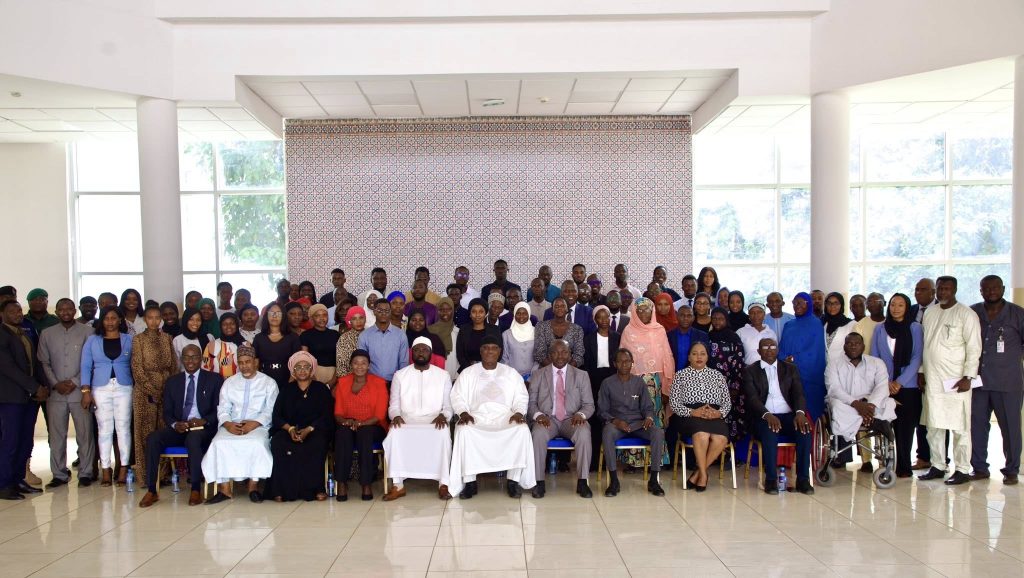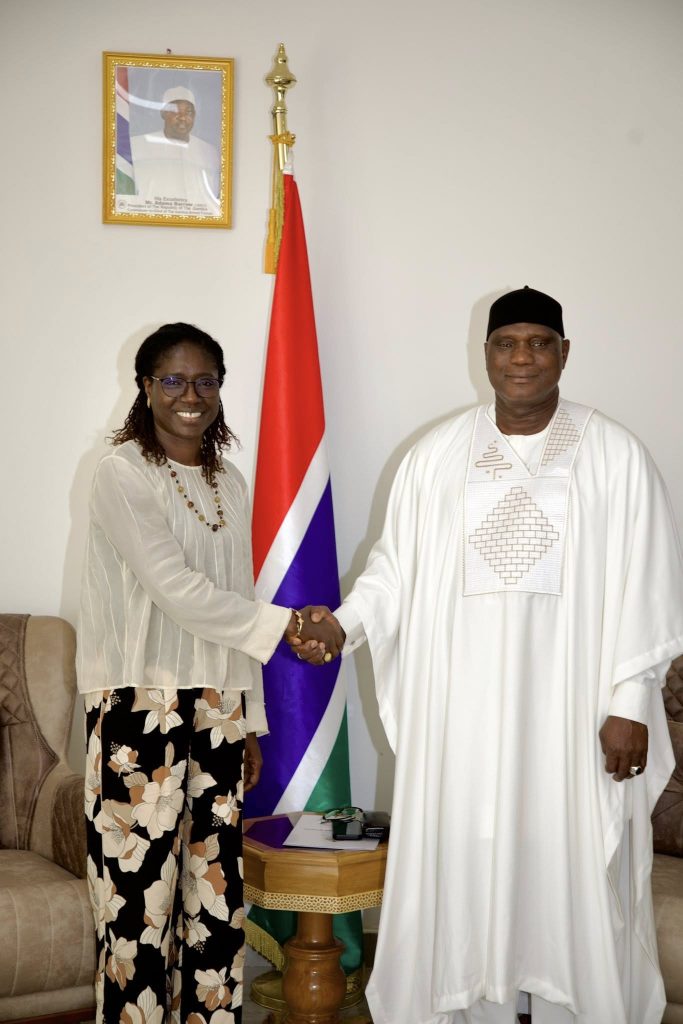𝐓𝐡𝐞 𝐆𝐚𝐦𝐛𝐢𝐚 𝐇𝐨𝐬𝐭𝐬 𝐆𝐥𝐨𝐛𝐚𝐥 𝐅𝐨𝐫𝐮𝐦 𝐨𝐧 𝐭𝐡𝐞 𝐑𝐚𝐛𝐚𝐭 𝐏𝐫𝐨𝐜𝐞𝐬𝐬 𝐓𝐡𝐞𝐦𝐚𝐭𝐢𝐜 𝐌𝐞𝐞𝐭𝐢𝐧𝐠𝐬 𝐨𝐧 𝐌𝐢𝐬𝐬𝐢𝐧𝐠 𝐌𝐢𝐠𝐫𝐚𝐧𝐭𝐬 𝐁𝐫𝐢𝐝𝐠𝐢𝐧𝐠 𝐭𝐡𝐞 𝐠𝐚𝐩𝐬: 𝐀𝐝𝐯𝐚𝐧𝐜𝐢𝐧𝐠 𝐜𝐨𝐨𝐩𝐞𝐫𝐚𝐭𝐢𝐨𝐧 𝐎𝐧 𝐌𝐢𝐬𝐬𝐢𝐧𝐠 𝐌𝐢𝐠𝐫𝐚𝐧𝐭𝐬 𝐢𝐧 𝐭𝐡𝐞 𝐑𝐚𝐛𝐚𝐭 𝐏𝐫𝐨𝐜𝐞𝐬𝐬 𝐑𝐞𝐠𝐢𝐨𝐧
The Gambia hosted the Rabat Process Thematic Meeting on “Bridging the Gaps: Advancing Cooperation on Missing Migrants in the Rabat Process Region.” Co-chaired by The Gambia and Switzerland, the event was supported by the International Centre for Migration Policy Development (ICMPD) and the International Committee of the Red Cross (ICRC). The meeting brought together delegations from 28 partner countries, international organizations, and technical experts. Held at the Sir Dawda Kairaba Jawara International Conference Center in Banjul, the two-day meeting marked a significant milestone as the first in-person gathering of the Network of National Focal Points (NFPs) for Missing Migrants, established under the Rabat Process framework. Speaking on behalf of the Government of The Gambia, Honorable Abdoulie Sanyang, Minister of Interior, addressed the plenary and emphasized the urgency of tackling irregular migration and addressing the challenges associated with missing migrants. He reaffirmed The Gambia’s strong commitment to regional cooperation and sustainable migration governance. Throughout the two days, participants explored the humanitarian impact of migrant disappearances, the importance of family engagement, and the need for strengthened legal frameworks and operational capacity. Key highlights included: Presentations from the International Organization for Migration (IOM) on the Missing Migrants Project, underscoring the critical need for data and informed prevention strategies; Interactive sessions on improving search, identification, and cross-border coordination; Peer learning on how to support families and uphold the dignity and rights of missing persons. The meeting also celebrated a key achievement: for the first time, National Focal Points from several Rabat Process partner countries met in person to deepen collaboration and lay the groundwork for a stronger, more operational network. In his closing remarks on day two, Ambassador Lang Yabou, PS 1 at the Ministry of Foreign Affairs, International Cooperation and Gambians Abroad, extended heartfelt thanks to participants, partners, and support staff, and called for sustained action: “We leave here not with despair, but with a clear roadmap for action. Let us honour the memory of the missing by strengthening our systems, supporting families, and working together to prevent further tragedies.” The Gambia also extended its gratitude to Switzerland, Nigeria (as current Chair of the Rabat Process), and institutional partners including ICRC, ICMPD, IOM, ECOWAS, and the EU Delegation. The Government of The Gambia reaffirmed its steadfast commitment to collaborating with regional and international partners to uphold the dignity and rights of migrants throughout their journey. It emphasized that no migrant should be left unaccounted for and that affected families must be treated with dignity and provided with the necessary support.




